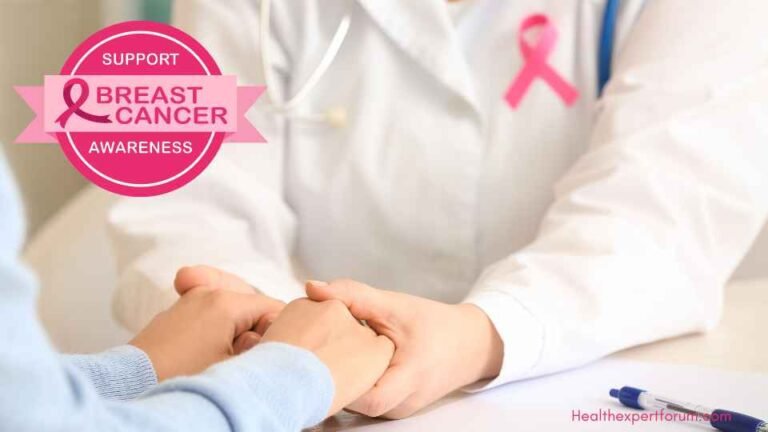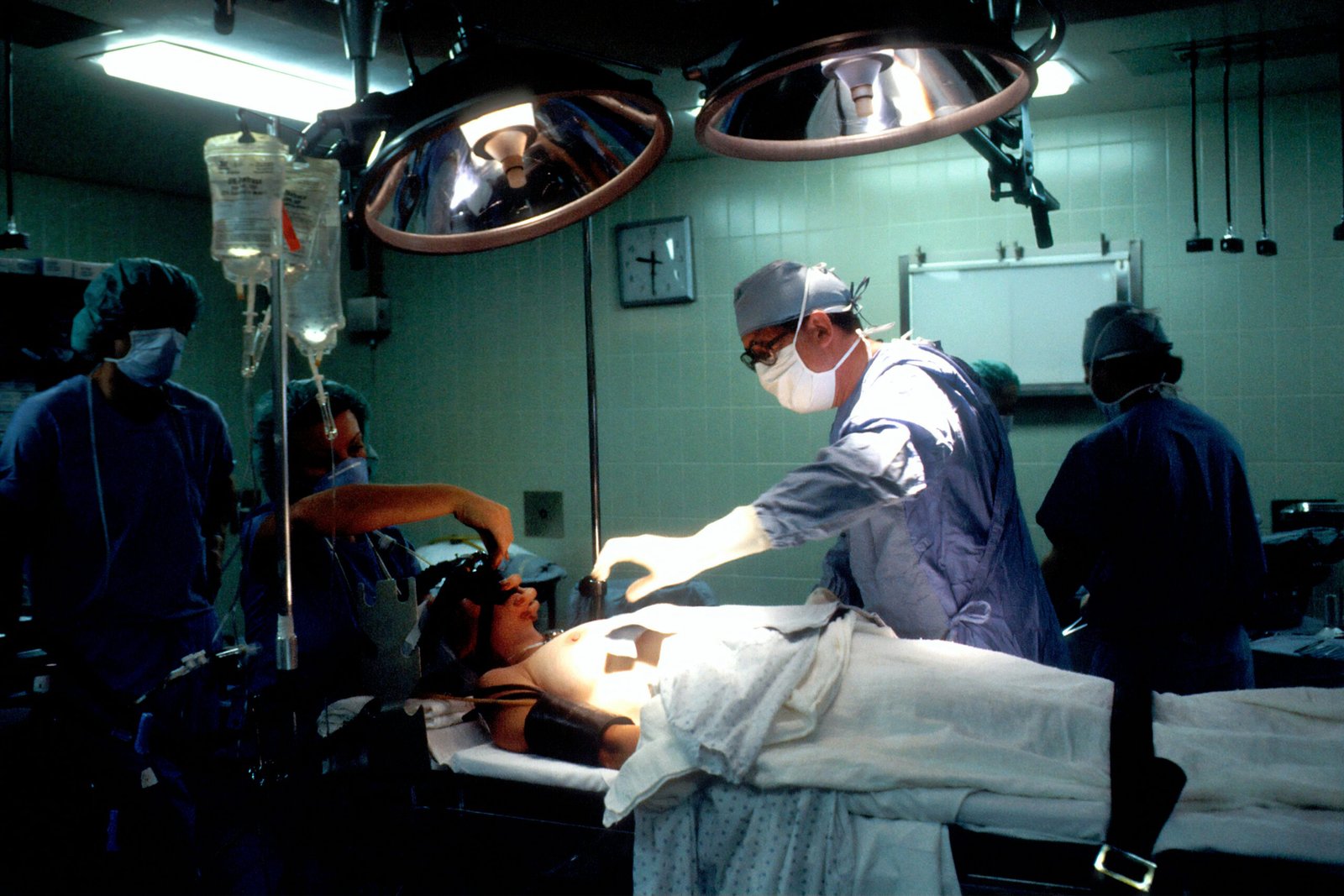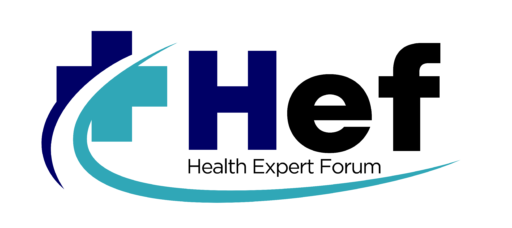#Knowyourdoctor Dr Khushbu Partani Eye Surgeon in Raipur MBBS, DOMS, Sr. Ophthalmologist / Eye Surgeon Get to know your Eye Surgeon in …
Breast Cancer Health Expert Forum Insights

Within the intricacies of global health, Breast Cancer remains a profound challenge, holding the dubious distinction as the most prevalent cancer among women around the world. Championed by the collective voices of the Health Expert Forum, efforts to fortify Breast Cancer Awareness and usher in robust Cancer Prevention strategies have never been more vigorous. Parallel to these endeavors are the strides in Treatment Innovations, aiming to curtail the mortality rate that this illness regrettably sustains year after year.
Armored with knowledge, empathy, and cutting-edge research, the Forum stands at the forefront, propelling a future where improved outcomes and triumphs against breast cancer are not just possible, but increasingly achievable. Discover a confluence of expertise where education meets action, all within these forthcoming discussions dedicated to one unified goal: reclaiming hope and health in the face of breast cancer.
Key Takeaways
- Breast Cancer ranks as the most common cancer affecting women worldwide.
- Global collaboration and knowledge sharing in the Health Expert Forum is pivotal to combat breast cancer.
- Comprehensive education on Breast Cancer Awareness is crucial for early detection and effective management.
- Innovations in Cancer Prevention and Treatment are integral to reducing the global burden of breast cancer.
- The ongoing evolution of treatment options underscores the importance of continuous research and clinical advancements.
- Patient empowerment through information and support structures is critical to navigating the complexities of breast cancer.
Understanding Breast Cancer: An Overview
At the crossroads of health education and pioneering research lies a crucial understanding of breast cancer. This condition, where malignant cells form in the breast tissues, constitutes one of the leading health concerns for women globally. Given its potential impact on one’s physical well-being and emotional state, a deeper dive into what constitutes breast cancer is essential for not only those diagnosed but also for public awareness at large.

Defining Breast Cancer and Its Impact on Health
Understanding the multifaceted nature of breast cancer begins with recognizing the broad array of breast cancer symptoms that impact patients differently. From subtle physical changes to more pronounced symptoms, the illness can manifest in varied forms, drawing attention to the necessity for a personalized approach to cancer detection and treatment.
The Importance of Awareness and Early Detection
Fostering an environment conducive to early detection strategies is at the heart of health education efforts. Encouraging regular health screenings and public campaigns about breast cancer prevention empowers individuals to seek timely medical evaluations, potentially leading to improved prognoses and treatment outcomes for countless patients.
| Early Detection Techniques | Benefits |
|---|---|
| Monthly Breast Self-Exams | Empowers individuals with proactive health awareness |
| Regular Clinical Breast Exams | Professional assessment for confirmation of anomalies |
| Annual Mammograms | Can detect cancer at earlier, more treatable stages |
| Genetic Testing for High-Risk Populations | Identifies genetic predispositions to breast cancer |
The strategic efforts made through educational campaigns and enhanced screening protocols epitomize the advances in combating this prevalent disease. As such, the medical community continues to stress the integral role of health education in surmounting the challenges breast cancer presents to individuals around the world.
Recognizing the Symptoms of Breast Cancer
Early detection of breast cancer can make a significant difference in treatment success. Acquainting oneself with the cancer symptoms associated with breast cancer is crucial for timely medical intervention.
Common Signs and When to Consult a Doctor
Several indicators may signal the need for a medical consultation. Noticing any of the following symptoms should urge an immediate check-up:
- New, unexplained lumps or thickening in the breast or underarm area
- Persistent breast pain unrelated to your menstrual cycle
- Unusual nipple discharge, especially if it’s bloody or occurs without compression
- Any changes in the skin of your breast, such as dimpling, redness, or scaling
- Alterations in the size or shape of your breast
- An inversion or change in the direction of the nipple
While these symptoms do not necessarily mean that one has breast cancer, they are a strong indication that one should not delay in seeking professional advice. Remember, when it comes to breast cancer treatment, the earlier it is addressed, the better the outcomes tend to be.
Breast Cancer Health Expert Forum: A Resource for Knowledge
The Breast Cancer Health Expert Forum establishes a critical nexus for individuals seeking expert medical advice and a comprehensive understanding of cancer prevalence. As a pivotal health forum, it facilitates the flow of verified information, making a substantial impact on the outreach of breast cancer education and support.
In this digital age, the forum has proven instrumental in connecting patients and health professionals beyond geographical constraints. With a strong focus on authoritative content, the platform emphasizes the significance of reliable support systems in navigating the complexities of breast cancer.
“Access to expert advice and current research is vital for anyone touched by breast cancer. This forum is a beacon of hope and knowledge.”
Below is an overview of the type of resources and discussions you can typically find within the forum:
- Interactive Q&A Sessions: Engagement with leading oncologists and researchers.
- Patient Narratives: Sharing of personal experiences and survival stories.
- Research Updates: Breakthroughs in treatment and prevention strategies.
- Lifestyle Guidance: Advice on diet, exercise, and overall well-being.
| Forum Feature | Description | Benefit |
|---|---|---|
| Expert Panels | Live discussions with oncologists and specialists | Direct access to professional insights |
| Resource Library | Curated articles, videos, and reports on breast cancer | Enhanced knowledge for informed decision-making |
| Support Networks | Connections to support groups and fellow patients | Emotional and social support |
| Latest News | Updates on the latest in breast cancer research | Keeping users abreast of crucial developments |
The Breast Cancer Health Expert Forum remains committed to disseminating expert medical advice and fostering an environment where up-to-the-minute information is accessible, enhancing public awareness and, ultimately, patient outcomes in the face of breast cancer.
Assessing Breast Cancer Risk Factors
When considering the risk of breast cancer, it is essential to recognize that both genetic and lifestyle factors contribute to an individual’s overall risk profile. Vital efforts in research and awareness have identified key elements that influence breast cancer occurrences, giving valuable insight into prevention and intervention strategies.

How Genetics Influence Risk
Genetic predisposition plays a crucial role in determining the risk. Specific genetic mutations, such as those found in the BRCA1 and BRCA2 genes, can significantly increase the likelihood of developing the disease. Genetic testing and counseling have become instrumental in helping individuals understand their inherited risk and make proactive decisions regarding their health.
Lifestyle Factors Affecting Breast Cancer Incidence
Lifestyle changes are acknowledged as another significant aspect impacting cancer risk factors. Choices related to diet, physical activity, and even alcohol consumption have been associated with many cases. By adapting healthier habits, individuals can actively reduce their risk and enhance their overall well-being.
| Risk Factor | Details | Preventive Actions |
|---|---|---|
| Genetic Mutations | BRCA1 and BRCA2 mutations increase breast cancer risk. | Genetic counseling and regular screenings. |
| Diet and Nutrition | High-fat diets and processed foods might elevate risk. | Insist on a balanced diet rich in fruits, vegetables, and whole grains. |
| Physical Inactivity | Lack of exercise is linked with higher breast cancer risk. | Engage in regular physical activity, aiming for at least 150 minutes per week of moderate exercise. |
| Alcohol Consumption | Excessive alcohol intake is associated with increased risk. | Limit alcohol or opt for non-alcoholic alternatives. |
The Health Expert Forum highlights the importance of understanding these cancer risk factors and encourages individuals to seek personalized advice for both genetic predisposition and lifestyle changes, leading to a more informed and health-conscious populace.
Strategies for Breast Cancer Prevention
The pursuit of breast cancer prevention is a proactive approach that combines wise lifestyle choices with informed medical practices. By understanding and incorporating cancer prevention tips into daily life, women can establish a first line of defense against breast cancer’s encroachment. From the foods we eat to the activities we engage in, each decision plays a pivotal role in maintaining breast health.
Preventive Health Measures and Lifestyle Changes
Adopting a healthy lifestyle is a powerful form of prevention that can reduce the risk. Balanced nutrition, regular physical activity, and maintaining a healthy weight are the cornerstones of this strategy. These changes do not require drastic overhauls but can be incorporated through simple everyday decisions.
- Opt for a diet rich in fruits, vegetables, and whole grains.
- Limit processed foods and red meats, reducing intake of fats and sugars.
- Exercise regularly, aiming for at least 150 minutes of moderate aerobic activity per week.
- Avoid smoking and limit alcohol consumption, as these are known risk factors.
- Consider discussing the potential benefits and risks of hormone therapy with a healthcare professional.
Benefits of Regular Screenings and Self-Exams
When it comes to detecting breast cancer at its earliest and most treatable stage, breast self-exams and health screenings are invaluable tools. Regular mammograms are the gold standard for health screenings, leading to early interventions. Additionally, familiarizing oneself with how the breasts normally look and feel through monthly self-exams can be an effective way to notice any concerning changes.
Health screenings and self-exams are not only about early detection—they empower women to take an active role in their health and well-being.
Understanding the benefits and the proper methods for conducting breast self-exams and participating in screening programs is key:
| Preventive Practice | Description | Recommended Frequency |
|---|---|---|
| Breast Self-Exams | Physical and visual examination of breasts | Monthly, ideally a few days after menstruation ends |
| Clinical Breast Exams | Examination by a health professional | Every three years for women in their 20s and 30s, and annually for women 40 and over |
| Mammograms | X-ray image of the breast | Annually or biennially for women aged 40-74, depending on risk factors |
By integrating these cancer prevention tips, breast self-exams, and regular health screenings into a comprehensive wellness plan, women can substantially bolster their defenses against the disease. Regular check-ups with healthcare providers also allow for personalized advice and updates on the latest prevention strategies.
Diagnostic Techniques for Breast Cancer
In the pursuit of combating the disease, timely and precise diagnosis stands as a cornerstone of effective treatment. Advancements in technology have revolutionized the ways through which we can detect and understand this complex disease.
The Role of Mammography in Early Detection
Mammography remains the gold standard for breast cancer screening, offering a non-invasive glimpse into the breast tissue. Its role in detecting cancer at an early and often more treatable stage has been instrumental in saving lives. Through the shadows and contrasts on a mammogram, radiologists can pinpoint areas of concern that may necessitate further testing.
Advancements in Imaging and Biopsy Procedures
Supplementing traditional mammograms, breakthroughs in diagnostic imaging have expanded the arsenal in this fight. Techniques such as ultrasound and magnetic resonance imaging (MRI) offer alternative or additional views, beneficial for dense breast tissues where mammograms might not be as effective. Furthermore, biopsy techniques have seen substantial improvements—minimally invasive methods including fine needle aspiration and core needle biopsies provide samples for analysis with minimal discomfort to the patient. The evolution of diagnostic options brings a tailor-made approach to each individual’s care, enhancing the accuracy and personalization of treatment.
Comprehensive Treatment Approaches for Breast Cancer
As we venture into the realm of breast cancer management, we witness an era where treatment options are tailored to the individual’s condition and personal health goals. Cutting-edge surgical procedures, combined with innovative therapy options, continue to revolutionize patient care. These interventions not only aim to eradicate cancer cells but also focus on maintaining quality of life post-treatment.
Surgical Options and Innovations
The surgical landscape for breast cancer surgery has experienced significant advancements, offering patients various options depending on the stage and type of their cancer. Surgeries range from breast-conserving lumpectomies to full mastectomies, having evolved to include less invasive techniques with a focus on aesthetic outcomes and faster recovery times.
Chemotherapy, Radiation, and Targeted Therapies
Post-surgical treatments such as chemotherapy treatment and radiation therapy have also become more sophisticated. These therapies are often designed in conjunction with targeted treatments, aiming to specifically attack cancer cells, minimize damage to surrounding tissue, and reduce side effects associated with traditional treatments.
| Treatment Type | Common Use | Advantage | Consideration |
|---|---|---|---|
| Surgery (Lumpectomy/Mastectomy) | Initial cancer removal | Removes tumor, preserves as much breast tissue as possible | May require reconstructive surgery |
| Radiation Therapy | Post-surgical treatment to eliminate remaining cancer cells | Localized treatment minimizes systemic side effects | Must manage skin care during treatment |
| Chemotherapy | Systemic treatment; often used before or after surgery | Targets rapidly-dividing cancer cells | Potential side effects such as hair loss, nausea |
| Targeted Therapies | Used in conjunction with other treatments; based on cancer’s specific genes and proteins | Attacks cancer cells with precision, sparing healthy cells | Requires genetic information about the tumor |
Survivorship and Support: Life After Breast Cancer
Embracing a new normal after the treatment involves addressing not just physical health but emotional and mental well-being. The journey of cancer survivorship includes a multidisciplinary approach to post-treatment care, which is as crucial as the treatment itself. Understanding and adapting to life after cancer is a continuous process, one that can be greatly assisted through support systems designed to aid in recovery and adjustment.

Navigating Post-Treatment Challenges
Once the acute phase of treatment concludes, survivors often grapple with a host of concerns. These include lingering side effects of treatment, fears of recurrence, and the task of integrating back into daily routines. Physical issues like fatigue and changes in body image can also impact a survivor’s return to ‘normal’ life. Comprehensive post-treatment care strategies are important to address these challenges and support a survivor’s health and recovery journey.
The Role of Support Groups and Counseling
Support groups and counseling services stand out as beacons of hope and solidarity in the post-cancer landscape. These platforms offer mental health support for individuals to express their concerns and connect with others who have shared similar experiences. By participating in these supportive communities, survivors can find comfort, gain practical advice, and build resilience as they adapt to life after breast cancer.
| Support Services | Benefits | Accessibility |
|---|---|---|
| Local Support Groups | Community connection, shared experiences | In-person meetings, community centers |
| Online Forums | 24/7 availability, wide network | Internet access, membership to groups |
| Professional Counseling | Personalized coping strategies, professional guidance | Healthcare facilities, private practices |
| Survivorship Care Plans | Customized follow-up care, monitoring | Hospitals, cancer centers |
Recent Advances in Breast Cancer Research: The landscape of breast cancer research is perpetually evolving, bringing to light new methodologies and revolutionary treatment modalities. Innovators in medical research are persistently pushing the boundaries, uncovering novel ways to combat this pervasive disease. Backed by rigorous medical research innovations, these advancements promise to significantly alter the prognosis for those touched by breast cancer.
Emerging Treatments and Clinical Trials
Investigations into emerging treatments have unveiled potent options that are currently being rigorously tested in clinical trials. These trials are critical not only for validating effectiveness and safety but also for hastening the availability of new treatments to patients in need.
| Treatment Innovation | Phase of Trial | Potential Impact |
|---|---|---|
| Immunotherapy Agents | Phase III | Enhanced immune response targeting cancer cells |
| PARP Inhibitors | Phase II/III | Focus on BRCA1/BRCA2 mutation-positive breast cancer |
| Anti-HER2 Therapies | Phase II | Expanded options for HER2-positive cases |
| PI3K Inhibitors | Phase II | Treats hormone receptor-positive, HER2-negative breast cancer |
Breakthroughs in Personalized Medicine
Personalized medicine stands at the forefront of innovation, ushering in a new dawn for patient-specific treatment strategies in breast cancer. By employing targeted therapies that are uniquely tailored to an individual’s genetic profile, healthcare providers can now offer more precise treatments with potentially fewer side effects, markedly enhancing the efficacy of cancer care.
- Genetic Screening: Increasing the accuracy of therapy choices
- Biomarker Development: Facilitating individualized treatment plans
- Pharmacogenomics: Customizing drug regimens to optimize patient response
Conclusion
Health Expert Forum represents a wellspring of critical information. It serves as a testament to the power of combining expert insights with community engagement to advance cancer education and advocacy. As we reflect on the wealth of knowledge shared, it becomes clear that the collective wisdom of healthcare professionals is a driving force in the ongoing battle against breast cancer. These experts illuminate the path to not only surviving but thriving in the face of this disease.
Key Takeaways from the Health Expert Forum Insights
The invaluable discussions and presentations have highlighted several key factors. Chief among them is the undeniable benefit of early detection, which remains our most formidable defense in saving lives. Additionally, the comprehensive understanding of risk factors and their management is an essential element of health advocacy. The dedication to continuous learning and improvement opens doors to innovative cancer treatments, emphasizing the need for personalized approaches to patient care.
The Continual Journey of Education and Advocacy
This forum has reaffirmed a commitment to education as the cornerstone of health advocacy. As we forge ahead, the narrative of breast cancer is being reshaped by the tireless work of researchers, medical practitioners, and survivors sharing their expert insights. Together, we journey toward a future where the impact of breast cancer is lessened, armed with knowledge, support networks, and an unwavering dedication to pushing the boundaries of what is possible in cancer care and treatment.
FAQs
What is breast cancer and how does it impact health?
It is the formation of malignant cells in the tissues of the breast, which can have profound effects on physical health, emotional wellbeing, and overall lifestyle. The disease can lead to significant health challenges, including the potential for metastasis or the spread of cancer to other parts of the body, making awareness and early detection critically important for treatment and survival.
Why is breast cancer awareness and early detection crucial?
What are the common symptoms of breast cancer?
The common symptoms of breast cancer may include new lumps or thickening in the breast or underarm, breast pain, discharge from the nipple (other than breast milk), a change in the size or shape of the breast, and changes to the skin of the breast, such as dimpling. It’s important for individuals to consult a doctor if they observe any persistent, unexplained changes.
How does the Breast Cancer Health Expert Forum support affected individuals?
The BreastCancer Health Expert Forum provides access to expert medical advice, the latest research, and treatment information. It’s a platform for discussing prevention strategies and sharing experiences, thereby empowering patients and healthcare professionals with knowledge and support.
What are the genetic and lifestyle factors influencing breast cancer risk?
Certain inherited genetic mutations, such as those in the BRCA1 and BRCA2 genes, significantly increase the risk. Lifestyle factors like diet, exercise, alcohol consumption, and tobacco use can also influence risk levels. Understanding these factors can help individuals make proactive choices for prevention and risk reduction.
What preventive measures can individuals take against breast cancer?
Preventive measures include engaging in regular physical activity, maintaining a balanced diet, minimizing alcohol intake, avoiding tobacco, and reducing exposure to environmental carcinogens. Regular breast screenings and self-exams are also crucial for catching any abnormalities at an early, more treatable stage.
What role does mammography play in breast cancer detection?
Mammography plays a crucial role in detecting breast cancer early by providing clear, detailed images of the breast that can reveal tumors that are too small for a physical exam to detect. It is a key tool in screening and diagnostic processes, particularly for women over the age of 40 or those with higher risk factors.
Can you describe the therapeutic approaches available for breast cancer treatment?
What types of support are available for breast cancer survivors?
Support for breast cancer survivors can range from support groups and counseling services to rehabilitation and physical therapy. These resources can help individuals cope with the physical and emotional aftermath of treatment and facilitate adjustment to changes in their lives post-cancer.
What recent advances have been made in breast cancer research?
Recent advances in research have led to the development of new treatments, such as immunotherapies and personalized medicine, which target the cancer more precisely. Other progress includes improvement in diagnostic tools and better understanding of the genetic basis of the disease, which aids in developing new targeted therapies.
All too often, healthcare focuses solely on curing diseases and prolonging life, sometimes overlooking the importance of providing comfort and support to …
Oncoplasty Surgery for Breast Cancer: Scope and Significance in Chhattisgarh Oncoplasty Surgery for Breast Cancer Breast cancer is a significant health concern …















